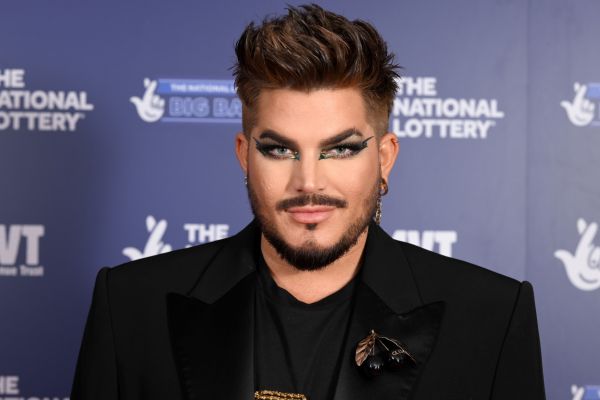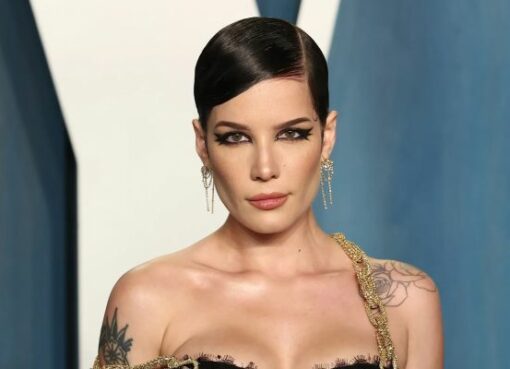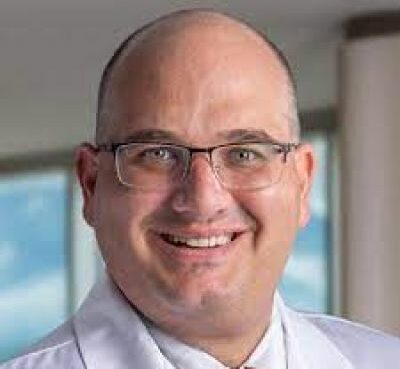Once upon a time, when Adam Lambert was just a few years into his career, his record label requested that he create an album of 1980s new-wave cover versions.
It was not an awful concept. Everyone who had heard Lambert’s rendition of Mad World by Tears For Fears on American Idol was aware of how well-suited he was to that age of melancholic synth-pop.
Two albums into his career, though, a covers album looked like an admission of defeat. Concerned that it would harm his reputation, the singer left the label.
“This is the only type of release they are willing to support,” he wrote in an open letter to his followers, “but my heart is just not in making a covers album.”
After a decade, his position has evolved. Lambert is arguably more well-known as the current lead singer of Queen than as a solo musician, and his new album, High Drama, consists solely of cover songs.
“Well, obviously, timing is crucial,” he argues. “I was not interested at the time they asked me to do that, and that was that.
“I’ve reached a point where the concept occurred to me and I thought, ‘That seems like a fascinating challenge.’ The plan was to select certain songs and invert them so that they sounded like entirely different compositions.”
Those heads have been thoroughly turned. On his latest album, he transforms Bonnie Tyler’s Holding Out for a Hero into a ravenous electro-pop song, Lana Del Rey’s West Coast into a grungy blues ballad, and Culture Club’s Do You Really Want to Hurt Me into a paranoid anthem.
“I learned from Queen that in order to make a song your own, you have to stop listening to the original for a while and figure out what it means to you,” he adds.
Ordinary World by Duran Duran is the most personal piece on the album, with Lambert drawn to the lyrical concept “of being an outsider and trying to make your way through everyday normalcy.”
His atmospheric interpretation aches with the sense of isolation he experienced as a Californian child.
“When I was a teenager coming to grips with my sexuality, I didn’t believe I had a chance in the music industry, primarily because I was homosexual,” he explains.
There were artists that emerged after achieving popularity, such as Elton John and George Michael, but I had no one to compare myself to.
“Rife with doubt”
Lambert was out to his family and friends during his 2009 run on American Idol, but the show mainly made veiled references to his sexuality. Even when they did, the tone was ambiguous: in one episode, Simon Cowell revealed sneaky reservations about the singer’s “theatricality.”
When photographs of him kissing his ex-boyfriend while costumed as a drag queen at a US music festival surfaced, it made news in the United States.
The photographs were deemed “embarrassing” by Fox News, and analysts said the repercussions cost him the American Idol title.
“That was frustrating and perplexing,” Lambert told the BBC before. “I was thinking, ‘What should I do?'”
Even after securing a record deal with a big label, worries remained over his commercial viability.
“Many people in the industry, despite their excitement and want to meet me, were filled with skepticism,” he recalls.
“It was a time of great interest. If I consider the headlines or questions I was asked in the past, you would not dare to do that today.”
Lambert was vindicated when his debut album, For Your Entertainment, topped the charts and sold twice as many copies as Idol winner Kris Allen.
Yet, discrimination does not vanish immediately. ABC threatened to sue Lambert when he gave his male bassist an unplanned kiss during a 2009 Grammys performance.
The network’s response was, ‘How dare you?’ They banned me temporarily. They threatened to file litigation against me. In his victory speech at this year’s Sundance film festival, he remarked, “Well, okay, that’s where we are.”
Since then, he claimed, “an increasing number of young people” have informed him that his “flamboyant” television appearances gave them the courage to come out to their parents.
Yet, he is concerned about the escalating anti-LGBTQ rhetoric of the religious right in America and the increased frequency of violent attacks on gay bars and drags events.
When he launched Ordinary World on American television, he dedicated it to the victims of the Colorado Springs tragedy, in which a gunman opened fire on an LGBTQ bar, killing five and injuring seventeen.
The performance saw Lambert going through a gloomy, surreal space filled with faceless mannequins, portraying the song as a solemn, melancholic rumination on loss.
“We simply wished to keep their memory in our hearts and not forget what had transpired,” he explains.
“It is not always simple to process such information. Even though I don’t know anyone who was a victim of that tragedy, it still affects me.
“Just after it occurred, I recall having a talk with a friend in which we asked, ‘What would you do in that situation?’ And it’s a frightening thing to have to imagine because it’s terrible, but you must now consider what your course of action would be.
It impacts all members of the LGBTQ community and those outside of it.
Also Read: Jonathan Groff, Who Is Out Gay, Discusses A Relationship Gone Wrong





